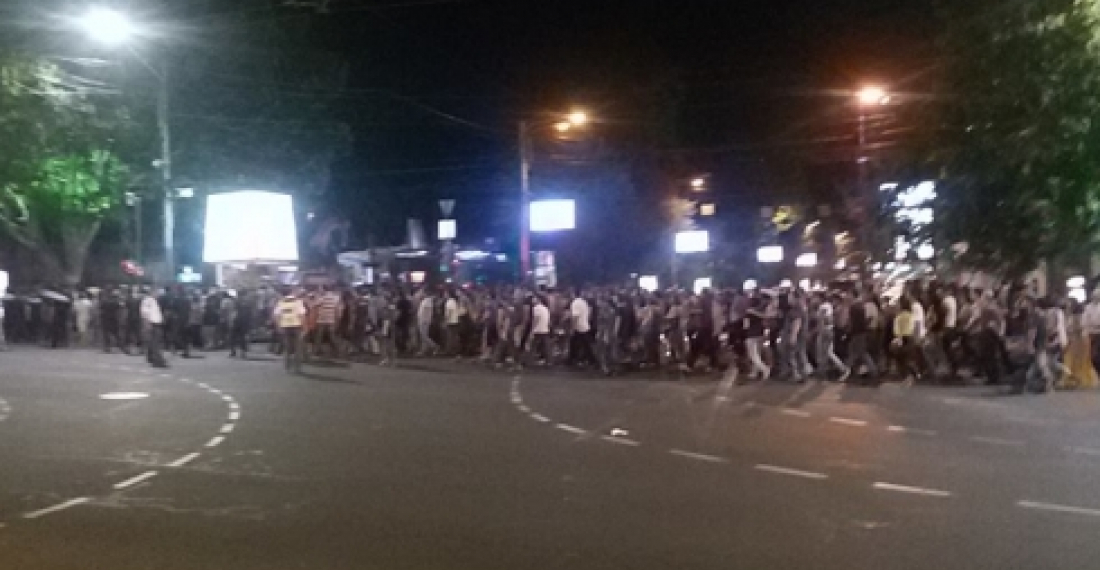This is a commentary prepared by the political editor of commonspace.eu
On Sunday, 17 July, as the world was still digesting the implications of the failed military coup attempt in Turkey, a small group of armed men entered a police station in the district of Erebuni in Armenia's capital Yerevan, killing one police officer, wounding several others and taking hostages. The group claimed to represent a small opposition group whose leader has been imprisoned for a while.
The government at first dismissed the incident as a mere criminal act, but soon it became apparent that the matter was more complicated. Police started a round-up of opposition activists, there were reports that social media was being restricted, and by the evening it became clear that the armed men in the police station had many sympathisers in wider society. Some media outlets that are usually critical of the government described them as war veterans, and others whilst criticising their methods expressed sympathy with their "cause", even though there was some confusion as to quite what this "cause" is. There were suggestions that the group was protesting against any possible deal on Nagorno-Karabakh that would see Armenia returning land it occupied during the war with Azerbaijan in the 1990s. Certainly this point of view has many supporters in Armenia, and among Armenians beyond. The group is also reported to be calling for the resignation of the President, Serzh Sargsyan. Armenian political analyst Mikhail Zolyan, speaking on CivilNet described the current situation as "dangerous and unprecedented in post-Soviet Armenia, having exposed how little the government in Armenia is trusted".
There has been criticism of the government for over reacting in the hours after the incident at the police station and for arresting people unconnected with the event. Some Armenians have now taken to the streets to protest about these detentions. So far the numbers are not critical - dozens of protestors rather than thousands.
The government has by and large been silent on the events, treating it as a law and order matter, but clearly it has wider political implications. There is now an increasing demand in Armenian society for the stand-off at the police station to finish peacefully and without further bloodshed. This means that the storming of the police station by government forces, an option that has been available to the government right from the start, is becoming increasingly unlikely - though it may still happen. The armed group has released some of the hostages they were holding, but claim to remain adamant in their demands. Having already killed one person the government cannot be seen allowing the perpetrators to go free. It seems that equally the government is wary of turning them into martyrs.
The incident, the government's reaction, and the peculiar public sympathy for this brazen act of violence are symptomatic of a more deeper problem. Armenian politics are stagnant, and have been for some years. Both the government and the mainstream opposition have by and large failed to inspire, and there is an increasing sense of frustration, especially among the youth. In recent years some groups, rallying around single issues, have emerged, often taking to the streets to make their voices heard. Usually these protests evaporated soon after.
Nagorno-Karabakh, and the possibility of progress in the negotiations which may require the Armenian government making serious concessions, is one issue that can turn isolated protests into a critical mass. As in Azerbaijan, so in Armenia, the government has failed to prepare society for an eventual peace based on compromise.
Within days, perhaps within hours the stand-off at Erebuni police station will come to an end, one way or the other. The implications are however likely to linger for some time.
source: This is a commentary prepared by the political editor of commonspace.eu
photo: Dozens of Armenians protesting on Mashot street in yerevan on the evening of Monday, 18 July. (picture courtesy of CivilNet)






